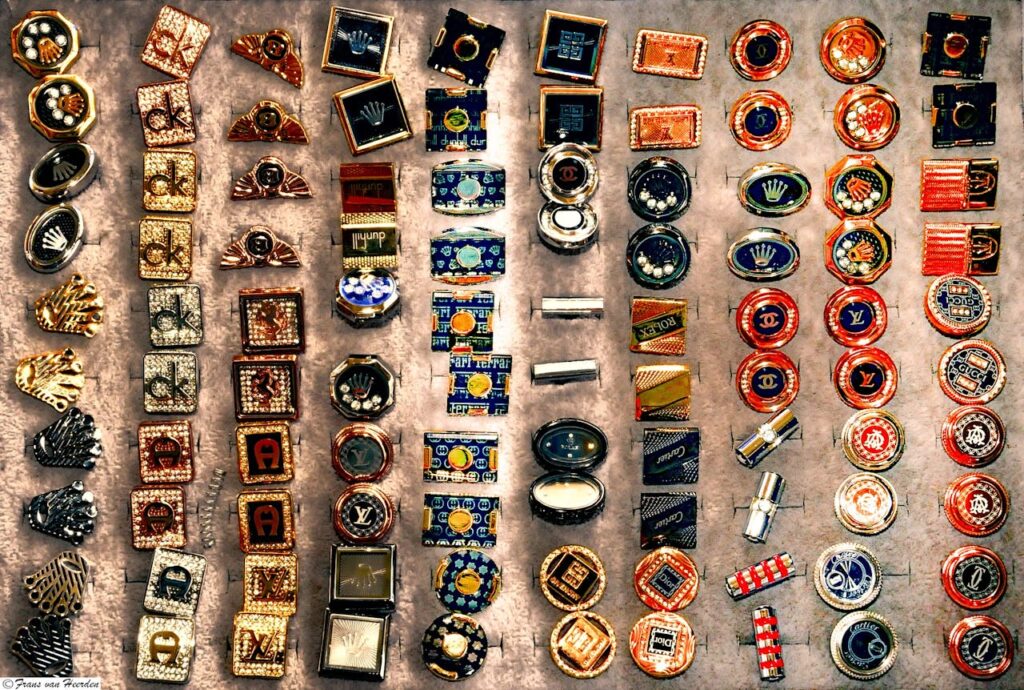The world has seen the rise and fall of many brands… but these ones that we have picked have stood the test of time. From fast-food chains to automobiles – here are the top 10 iconic brands in the world today!
Grading Criteria: We look at brands which have become an integrated part of society all around the world and take into consideration their products, logos and marketing, area of operations and level of consumerism.
10: Disney
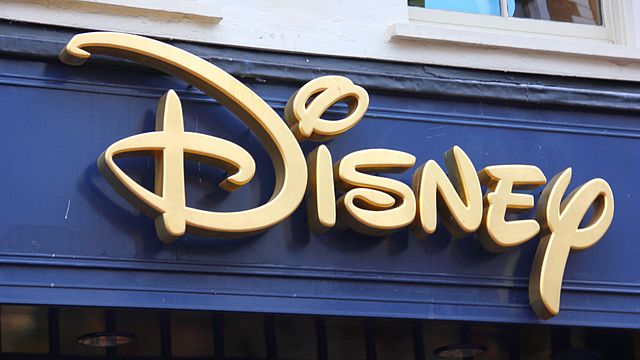
Delivering us quality cartoons and timeless, heartfelt movies since the early 1920s, the Disney brand is still going strong with their ever-growing entertainment empire.
The Walt Disney Company was founded by Walt Disney and his brother Roy in 1923, which back then was a small animation studio operating in Hollywood under the name of the Disney Brothers Cartoon Studio. From here, they designed iconic characters like Mickey Mouse and began expanding into films in the 1930s and 1940s with classics like “Dumbo” and “Snow White and the Seven Dwarfs”. Throughout the years, the company and brand evidently expanded with the opening of their first theme park, Disneyland Park in 1955, and this grew with the opening of symbolic theme parks such as Disneyland Paris and the Walt Disney Resort in Florida. In more modern times, they have moved into acquisitions of other companies such as Pixar Animation Studios and Marvel Entertainment, and found continued success in the production of media such as live-action films and, even, moving into the streaming world with their popular Disney+ platform.
This makes Disney one of the most popular entertainment icons globally since the early 20th Century, an accolade not many can claim.
9: Amazon
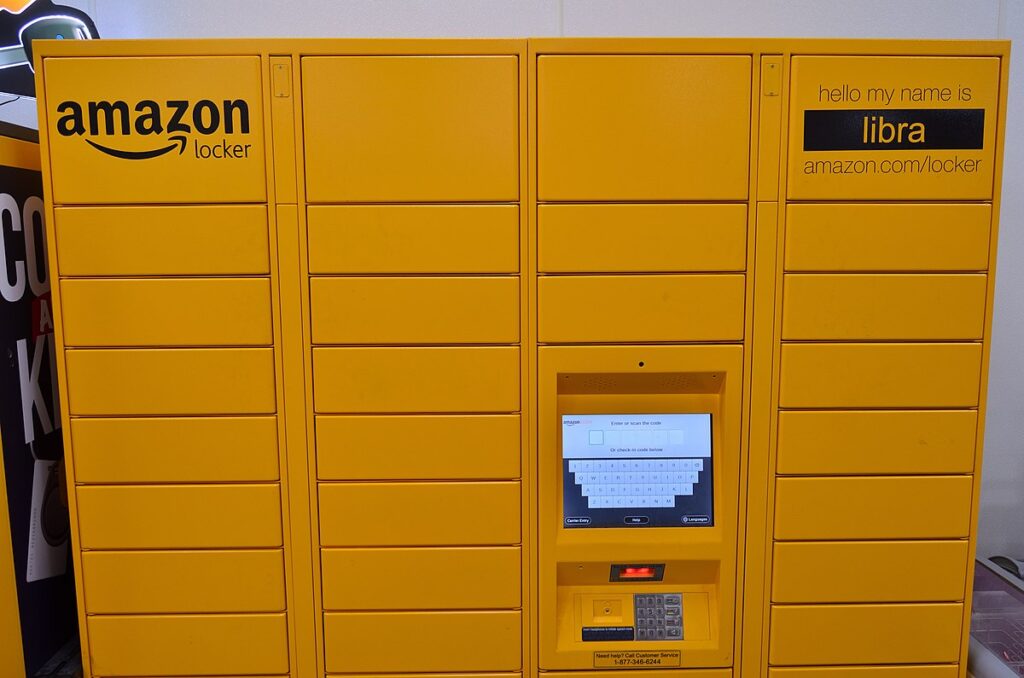
One of the newest names you’ll find on the list having been established in 1994 by Jeff Bezos, Amazon is one of the giants when it comes to online retailers. If you have never used their services, you have definitely heard about them and we are pretty sure that you would have seen at least one of their parcels in your lifetime.
Amazon began as a simple online bookstore but rapidly grew to offer other products and services. By the late 1990s, it had expanded into offering CDs, DVDs and electronics as well as a range of other consumer goods. In 2000, Amazon had launched its marketplace platform which allowed third-party sellers to sell new and used products alongside Amazon – boosting its growth over the following years. The beloved Amazon Prime, used by more than 230 Million users worldwide today, was also introduced shortly after as a subscription service offering shorter shipping times, music and video streaming and free, rapid shipping (subject to eligibility, obviously). Amazon has also expanded into computing products, offering cloud computing services such as computing power and infrastructure under Amazon Web Services (AWS) and has made significant developments into hardware with the launching of popular products such as the Kindle E-Reader, Fire TV and Echo smart speakers powered by the Alexa Voice Assistant – to name a few.
Amazon has truly innovated and established a worldwide presence serving many customers in numerous countries with infrastructure established in many of them. Its more recent expansions include ventures into AI and the food industry. A true retailing giant!
8: Nike
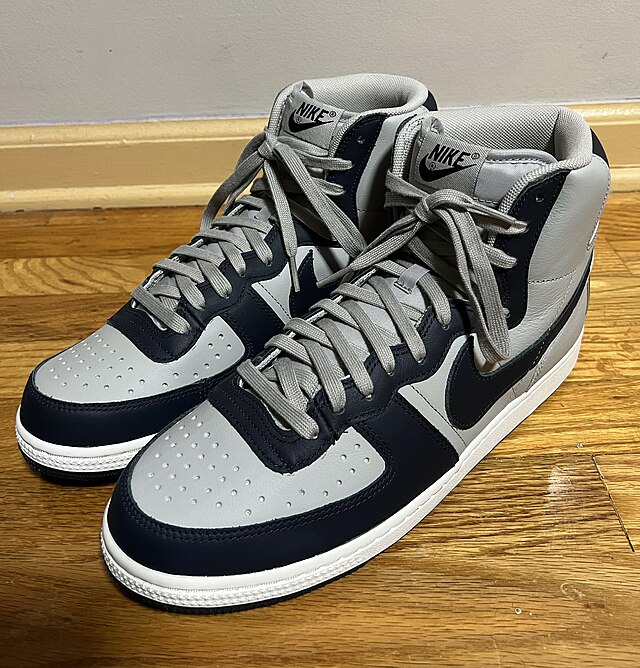
A global leader in athletic footwear, apparel, equipment, and accessories. The simplistic tick design remains one of the most recognisable logos in the world that’s helped build a reliable brand.
Nike was originally named Blue Ribbon Sports (BRS) which was a distributor company for a Japanese shoemaker brand. in 1971 the company changed its name to Nike, which was inspired by the Greek God of Victory who shared the same name. With the name change came the symbolic “swoosh” design in which one of the founders Phil Knight paid $35 for! Some of Nike’s most popular products include their Air Force trainers and Air Jordan line of basketball shoes. The company has always been renowned for their powerful marketing campaigns, which include the iconic “Just Do It” slogan and use of high-profile athletes which has further solidified its brand image. Nike sells its products through various channels, including company-owned retail stores, e-commerce, and third-party retailers.
Overall, Nike’s combination of innovative products, powerful marketing, and global reach has reassured its position as a dominant force in the athletic apparel industry.
7: Toyota
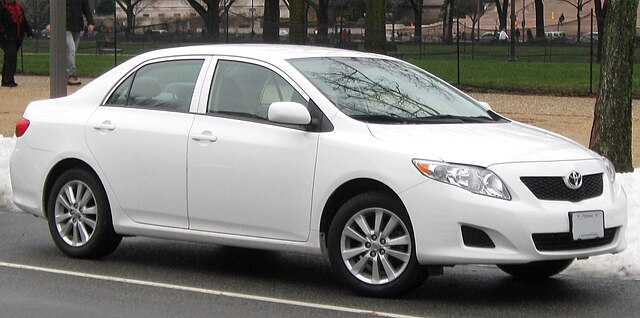
Toyota Motor Corporation is one of the world’s largest automobile manufacturers, known for its commitment to quality, innovation, and reliability. They export globally and manufacture all types of vehicles from SUVs and hatchbacks to pickup trucks and buses.
Founded in the late 1930s in Japan, Toyota initially focused on making automobiles – launching its first one in 1936, the Toyota A1 which entered production as the AA. During the second world war, it began shifting its production to making trucks for the Japanese military. The company then began manufacturing automobiles again with rapid growth and making its first mass-produced cars for markets around the world such as America. They revolutionised manufacturing with the Toyota Production System or TPS, which was a manufacturing methodology that focused on eliminating waste and maximising efficiency. TPS became a model for manufacturing processes worldwide. Known for their quality and efficiency they became known for adapting to local markets worldwide and completing excellent sales with cars such as the Camry and Corolla. They made popular hybrid technology with the worlds first mass-produced hybrid car, the Toyota Prius, which boosted popularity for hybrid vehicles worldwide.
Known for their strong corporate culture, Toyota has always been at the forefront of environmental sustainability in the automotive industry with investments into renewable energy and carbon neutrality initiatives – you can be sure to always see a Toyota on the road wherever you go.
6: Microsoft
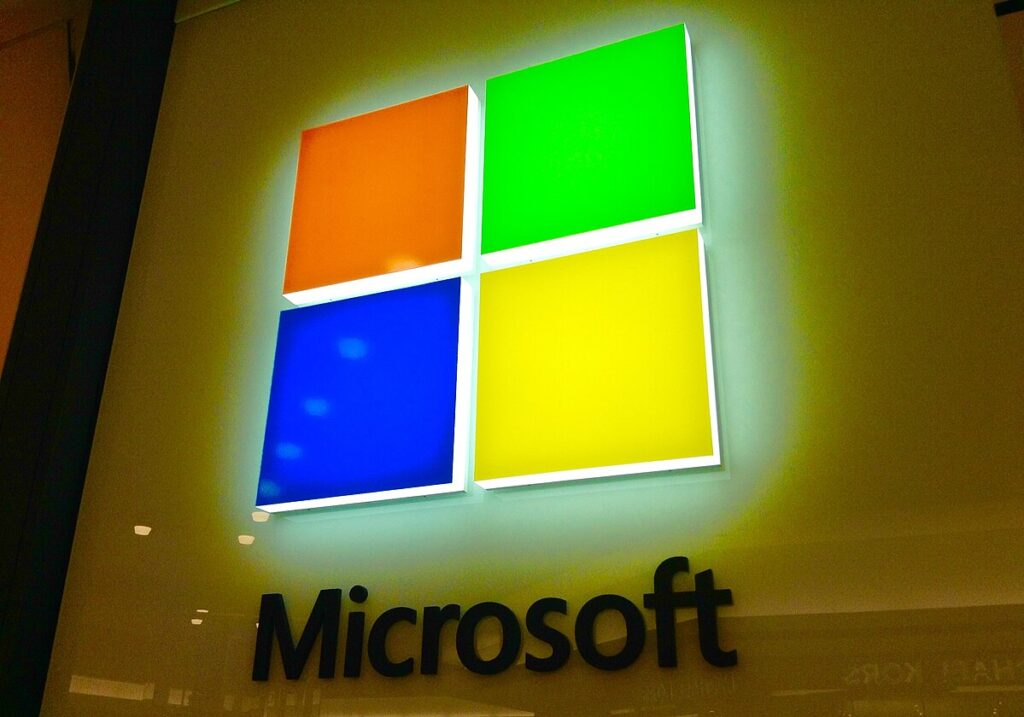
A tech conglomerate with deep foundational roots in the cyber world. The Microsoft Corporation is known for its software products, cloud services and, of course, its operating systems.
Founded by Bill Gates and Paul Allen on in 1975, the company started out developing and selling software for personal computers. Their first success came with the development of MS-DOS (Microsoft Disk Operating System), an operating system for IBM-compatible personal computers. MS-DOS became the foundation for Microsoft’s future operating systems. Microsoft over the years released probably their most popular service, Windows, which became a dominant operating system for personal computers. Subsequent versions of Windows have been made up until this day with notable examples including Windows 95, Windows XP, Windows Vista, and Windows 10 and 11. Microsoft Office, introduced in 1990, also became a cornerstone of the company’s success introducing productivity applications such as Word, PowerPoint and Excel, which are extensively used in personal computing, business, and education. Other innovative software and hardware include Internet Explorer, which was the dominant browser throughout the 90s and noughties, and products such as Xbox gaming console, and personal brand tablet’s and computers.
Microsoft has had a significant impact on the technology industry and popular culture. Its software products and services are used by billions of people worldwide, and the company has played a key role in shaping the modern digital landscape. Overall, Microsoft’s history is characterised by innovation, leadership in the software industry, and a continued evolution to adapt to changing technological trends and customer needs. Chances are quite high that you have one of their products or use one of their services in your home.
5: Facebook
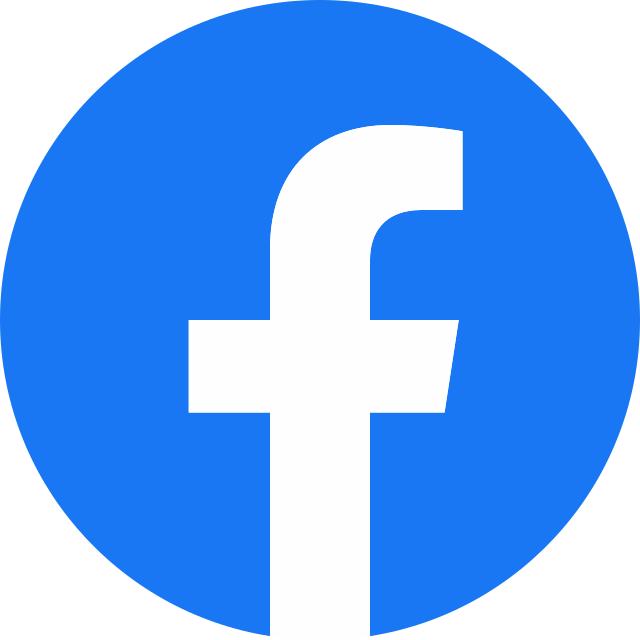
Facebook, a leading social media platform that has profoundly impacted how people connect and interact online, it has changed the world in terms of social media communication.
Founded by Mark Zuckerberg and some of his roommates, it was launched in 2004 – initially as a platform exclusively for Harvard University students. After its initial success, it expanded to other educational facilities across the United States. In 2006, it became available to anyone over the age of 13 with a valid email address. Facebooks features that contributed to its popularity include news feeds which aggregated updates from friends and pages, and the Like button (2009), which allowed users to engage with posts and content. Facebook has acquired big social media platforms such as Instagram and WhatsApp which due to the rise of smartphones have seen extensive use and growth in which it has capitalised on this with their acquisition. Although popular, Facebook has faced much controversies over the years including privacy concerns, data breaches, and its role in spreading misinformation and divisive content. These issues have led to increased scrutiny from regulators and criticism from users and advocacy groups. In 2021 it was rebranded into Meta, which expanded its focus into virtual reality and the metaverse.
The biggest social media platform in the world with over 3 Billion monthly users as of 2024 – it has played a central role in shaping the digital landscape of the 21st Century, impacting how people interact, communicate, and engage with content online. Its billions of users vary across different countries and demographics and its influence extends beyond social networking to areas like digital marketing, e-commerce, and content creation.
4: Google
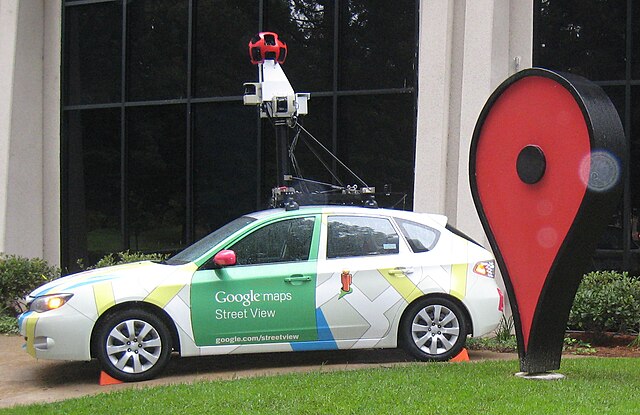
Before typing in Facebook you usually first see Google, a multinational technology company most known for its search engine.
Incorporated in 1998, Google’s mission was to organise the world’s information and make it universally accessible and useful. The original search engine was called BackRub and gained popularity due to its accuracy and speed, and the name was later changed to “Google,” a play on the word “googol,” representing the large number – this is represented by the digit 1 followed by 100 zeroes. Google’s search engine was powered by the PageRank algorithm, which ranked web pages based on their relevance and importance. This algorithm revolutionised internet search by delivering more relevant results to users. Google first went public with an IPO in 2004 which raised $1.67 Billion, the company’s stock price soared and it became one of the most valuable companies in the world. Over the years, Google has expanded its offerings to include a wide range of products and services, including Gmail, Google Maps, Google Drive, and the most commonly known YouTube and Android which were both acquired in the 2000s. Google has invested heavily in artificial intelligence (AI) and machine learning technologies, integrating them into various products and services.
Google’s products and services have had a profound impact on how people access information, communicate, and conduct business online. The company’s influence extends globally, shaping the digital landscape and driving innovation in technology – its an icon that will forever be ingrained in society and history.
3: Coca Cola
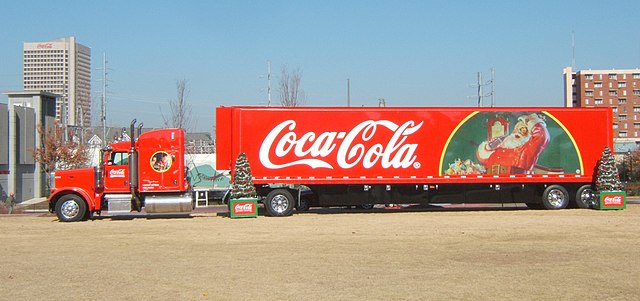
The oldest brand on here, Coca-Cola is one of the most recognisable brands globally, known for its carbonated soft drink.
Dating back all the way to the late 1880s, Coca Cola was originally invented by Dr John Pemberton, who was a pharmacist from Atlanta, Georgia. He created a caramel-colored syrup that he mixed with carbonated water, intending it as a medicinal tonic. The beverage quickly gained popularity for its refreshing taste and effervescence. The Coca-Cola trademark was registered in 1893 and its distinct Spencerian script logo became one of the most recognised symbols in the world. Originally it was only available in soda fountains but it became bottled in 1899 to make it more accessible for consumers and began exporting globally by establishing bottling plants and distribution networks worldwide. They reached markets in over 200 countries and adapted their formula and marketing strategies to suit local tastes and cultural preferences while maintaining its core brand identity. Over the years they poured heavily into marketing campaigns with popular examples being the “share a coke” and the iconic “Hilltop” commercial with the “I’d Like To Buy The World A Coke” song.
Coca Cola has become deeply ingrained in popular culture featuring in movies, music, art, and literature. Its brand is associated with happiness, togetherness, and celebration, making it a symbol of joy worldwide.
2: Apple 
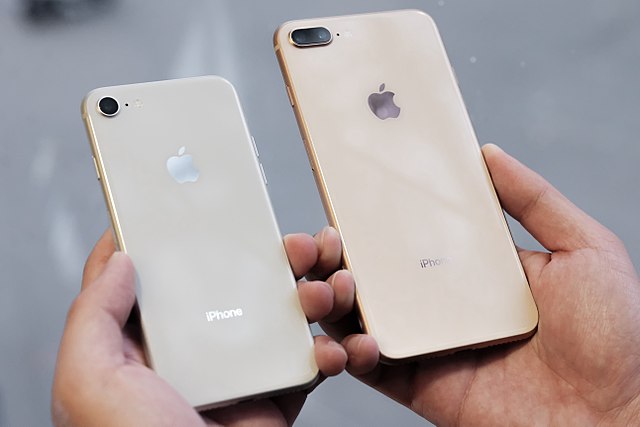
A rival of the great Microsoft, this tech giant has made its way from developing computers to making devices that we can control and monitor our lives from our hands.
Founded in 1976, Apple began selling personal computers for the public and their first success came with the Apple II, released in 1977, it was one of the first mass produced microcomputers. As an alternative to Windows, Apple released their on GUI (Graphical User Interface) called Macintosh as an alternative to Windows, along with the mouse. This heavily influenced the future of the design of computer interfaces. Although throughout the 1990s it might not have been that popular, Steve Jobs (one of the original founders) returned to the company and revitalised Apple’s brand image and product line-up. The first of these being the iPod, a portable music player, which came with the software iTunes where music could be purchased and kept in a digital library. Then came the revolutionary iPhone in 2007, which modernised the idea of the smartphone; and then the iPad, which bridged the gap between a computer and a smartphone. The famous App Store was launched in 2008 also, which allowed third party developers to distribute apps for iOS devices which quickly grew into a marketplace with millions of apps. Apple’s logo is one that almost all future generations worldwide will recognise as the world modernises and shifts to technological upgrade, Apple’s products are considered second to none by many and many of their products have changed the way the modern world functions and operates. They pretty much dominate certain portions of the technology market these days and have developed a large cult following who will only use Apple products.
A super influential company whose name and brand is associated with quality, minimalist designs and user interfaces which set the industry standards for aesthetics and usability. You can be sure that in the next 50 years, Apple will be there continuing to shape the technological world that will see us make huge advancements within design, culture, and business.
1: McDonald’s
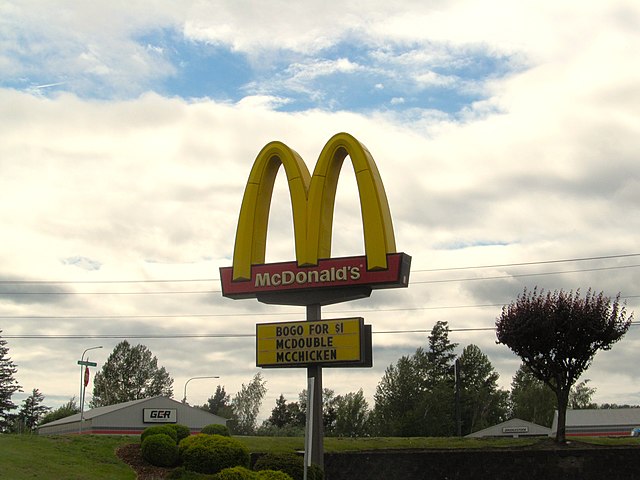
When you think of a brand name, or the very concept of a brand, McDonald’s is probably one of the first things that come to mind. This fast-food restaurant has easily imbedded itself for generations as a happy place for kids and adults alike with the promise of great, quick food.
McDonald’s history is characterised by innovation, expansion, and cultural influence. It has become a symbol of fast-food and American culture worldwide, with thousands of restaurants serving millions of customers every day. Founded by Richard and Maurice McDonald in 1940 as a barbecue restaurant in San Bernardino, California, the business grew quickly and was reorganised into a hamburger stand, which eventually became the Mcdonald’s we know today. They pioneered the “Speedee Service System,” which streamlined operations and emphasised quick service and consistency. This system laid the foundation for McDonald’s efficient and standardised restaurant operations. The iconic Golden Arches logo was introduced in 1953. The arches became synonymous with the brand and are instantly recognisable worldwide. It was one of the first American fast-food chains to establish a global presence, McDonald’s is one of the most recognised brands globally, with its familiar logo, and iconic menu items. The company’s marketing efforts, including advertising campaigns, sponsorships, and partnerships, have contributed to its brand recognition and success. They continue to be popular today and have innovated with technology in their restaurants such as: self-service kiosks, mobile ordering, delivery services, and digital marketing initiatives. Their marketing towards kids with things like play areas and happy meals have also helped ingrain their brand into the the young from a young age that will continue serving future generations.
The power of McDonalds is that even though it is well-known that fast-food such as theirs is unhealthy, it still manages to see the world flock to its restaurants to eat their food. While writing this post, I found myself craving a McDonald’s while researching and looking at pictures. Undoubtedly, the top choice for this list.
Honourable Mention: BMW
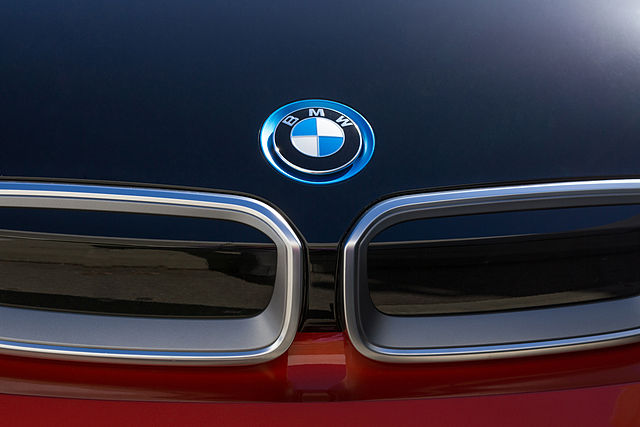
The other car brand that would’ve made the list. BMW is a highly respectable company known for making quality and prestigious automobiles. While their are many popular car brands out their that could have rivalled. BMW is often one of the first thoughts when someone says the word “car” and their influence can be found in pop culture and deeply ingrained throughout society whether it be for their power, reliability, or quality build.
Other Contenders
Mercedes: Another popular car brand renown worldwide for comfort, class and luxury.
Starbuck: A multinational coffeehouse chain known for its specialty coffee and unique customer experience.
Samsung: A south Korean tech conglomerate providing tech and electrical products to the world.

